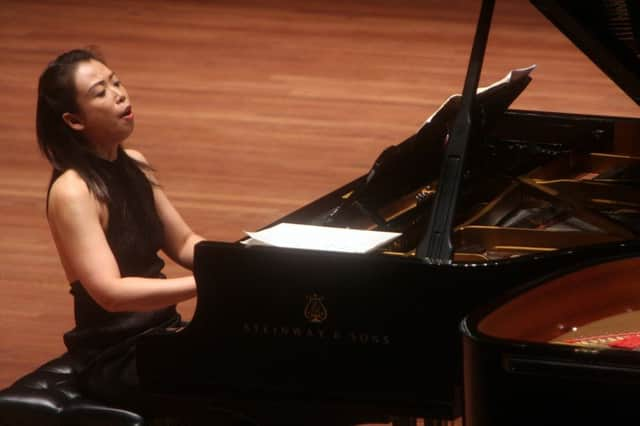Classical reviews: John Lill | Maki Namekawa


And when that composer is Beethoven, another great presence reveals itself. Lill plays him with an integrity few can match; the evidence of that was abundant on Friday when he performed four Beethoven sonatas in a solo recital that was part of Glasgow Royal Concert Hall’s latest mini-weekend piano festival.
Lill opened with the Pathétique, a familiar work, but revealing how much more there is to it than its familiar motifs and melodies. The solid weight of the opening chord reverberated like an lightning thought, left hanging as its true meaning was pondered. His response was like that of a man who had surprised even himself with its profound impact, from which point the music unfolded with an intellectual probity, freed up by calculated acts of spontaneity. Teasing silences, the beautifully calculated tonal balance of the Adagio, dramatic mood swings, all brought fresh insights to an old warhorse.
Advertisement
Hide AdThere were more miracles in the Appassionata, its autumnal second theme, in particular, burned with a brooding heat, its slow movement variations thoughtful and sublime. Even in the so-called Moonlight sonata, Lill shared the freshest of thoughts, the characteristic clichés replaced by simple originality.
And he simply blew us away with a reading of Beethoven’s last sonata, No32 Op111, that ultimately proved less is more. Lill tuned into its elemental intensity, evoking a magical sense of peace and resignation as the work drew to its quiet conclusion. I can’t recall being so moved by its timeless beauty. And with that over, Lill bowed politely and left.
Maki Namekawa’s affinity is with Philip Glass, whose set of 20 Études for piano she played as a monumental set in Saturday’s evening recital in the fabulous new auditorium which is part of the newRSNO Centre at the GRCH.
The hall’s clean, sharp acoustics – my first experience of it with the adjustable walls set at recital room size – were the perfect fit for a challenging listen. For these works – written over many years, and displaying in their later stages a noticeable freeing up from his earlier style – are typical Glass, in the way he uses his multiple obsessions of broken chords, simple repetitive melodies and narcotic rhythms to trick the brain into a state of temporal submission.
But they have a genuinely engaging charm, which Namekawa imaginatively captured, except for momentary signs of tiredness that surfaced after the interval. These pieces encompass a world of stylistic references that come and go – figurative echoes of Rachmaninov and Chopin, joyous nods to jazz, the familiar lugubrious charm of his film-score idiom, even a movement that could just as easily be a Beatles song. Namekawa found unique treasures in every one.